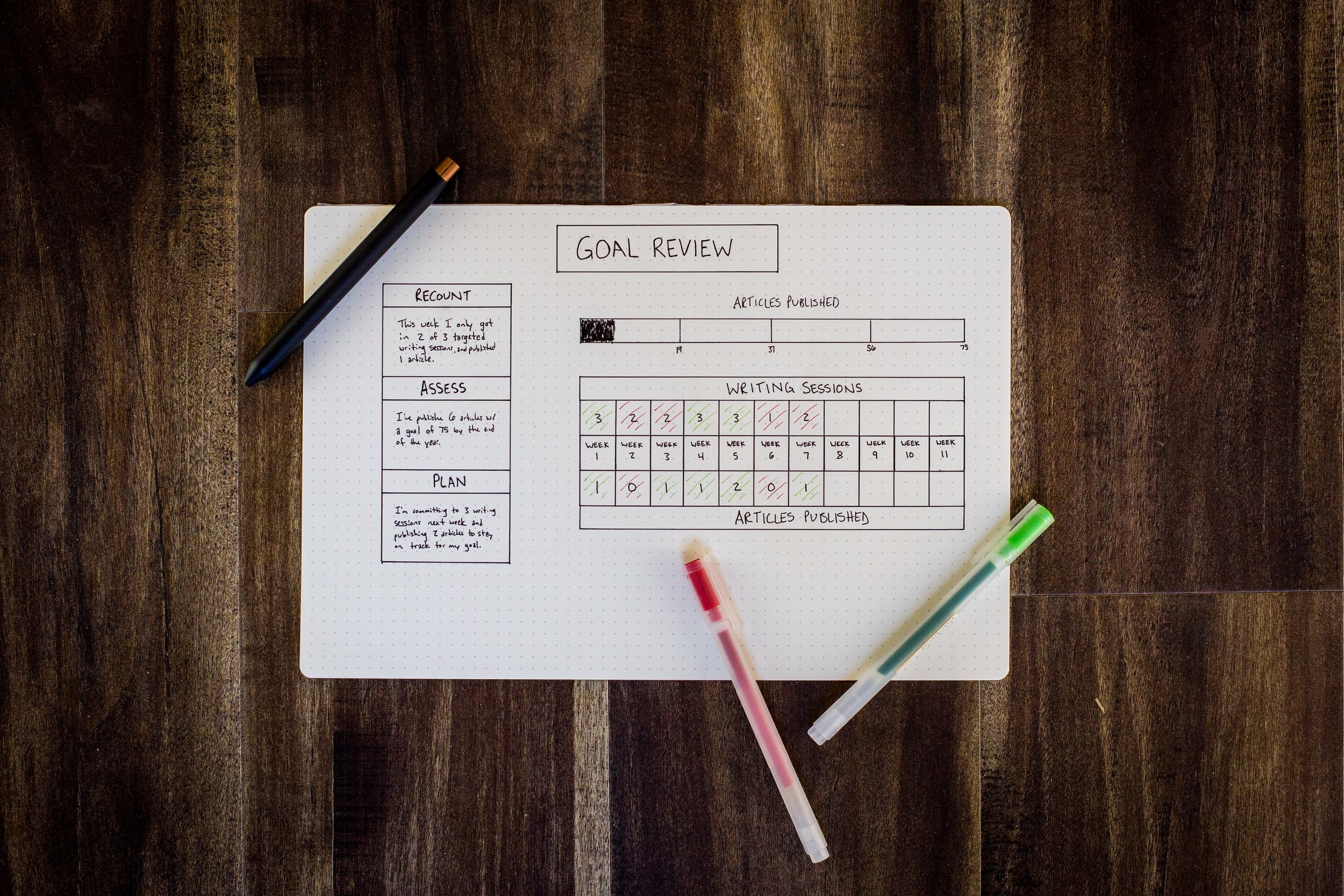How to Use SMART Goals to Support Your Job Search
/Photo Credit: Isaac Smith on Unsplash
When job searching, it’s important to set goals for yourself and create a plan for success. However, just saying “my goal is to get a new job,” isn’t going to get you anywhere. You need a structure with details, so you can take action and accomplish what you want—in short, you need a SMART goal.
What Are SMART Goals?
SMART goals aren’t just any kind of big-picture goals. They’re designed to establish a clear understanding of what exactly you set out to accomplish and how you plan to get there. SMART is an acronym, and the area each of the letters focus on work together for you to have real actionable goals that will have results.
Specific: What exactly do you want to do? What actions must you take? This is basically the mission statement for your goal. It should answer all of the key “w” questions with specificity— consider who needs to be involved, the details of what you’re doing, when you want to accomplish it, where this needs to happen, which obstacles or requirements you’ll face, and why you’re doing this.
Measurable: What metrics will you use to track progress? Establishing your criteria is key because it’s a tangible way to analyze your progress. You should have clearly defined information (qualitative or quantitative data) to determine if the goal is achieved. These metrics also help define what success looks like for you.
Achievable: Is this goal realistic? Do you possess the right skills and resources to complete it? This element is to inspire you to go after your goal. Here, you’ll outline your key action steps. Note that you have may to break the goal down into milestones and tasks. Determine if you need to learn new skills, what would be necessary to do that, and how long it would take.
Relevant: How does the goal fit into the big picture? Why is the outcome important? Understand your reasons for working toward this goal and make sure they align with your other long-term goals.
Time-bound: What’s your time frame? Is there a target date you want to hit? Your timing has to be realistic for you to be successful. Provide deadlines for each action step to mark your progress. Consider what half way looks like. Time constraints also create a sense of urgency so you’ll stick to this goal.
When formulating SMART goals, you should write down the answers to each question in a chart. Clearly articulating them in writing will help hold yourself accountable.
Why SMART Goals Are Important
SMART goals are structured to work. When you’re able to visualize your goals and set concrete plans, rather staying vague and abstract, you’ll actually do what you need to achieve them. SMART goals hold you accountable with actionable steps and a deadline, which means you’ll effectively follow through. And along the way, you can track your progress and evaluate your performance.
How SMART Goals Can Help You In Your Job Search
Job searching can be a daunting task, and it’s easy to get discouraged. This is where SMART goals come in. You can’t control whether or not you’ll get a job, but you can control your commitment. Outline your SMART goals to focus on the process, not outcomes—it’s all about what you are doing. Consider some of the following elements:
Completing your market research on desired titles, salary, and employers
Get your resume, cover letter, social media, and interview strategy in order
Dedicate a certain amount of hours for job searching each week
Set a number to how many jobs you want to apply to each week
Also set a number to how many connections in your network you reach out to each week or for each job
You can track your progress by metrics such as percent of applications converted to interview, percent of interviews converted to second or third interview, or percentage of job applications that meet the majority of your job criteria.
SMART goals are helpful because they’re actionable and help you track your performance along the way. When applying them in a career search context, you can be more organized and see if your current strategy is working for you. When you hold yourself accountable to a structured plan, you’ll keep working until you get an outcome (offer) you want.




